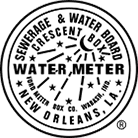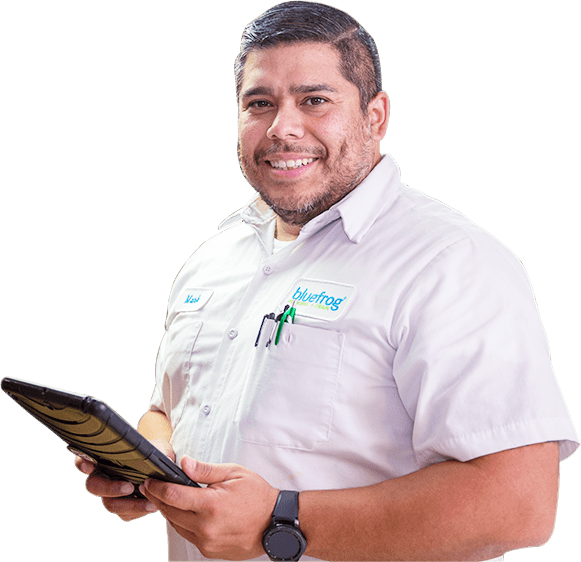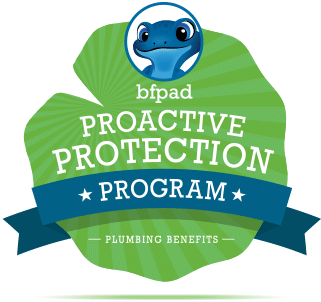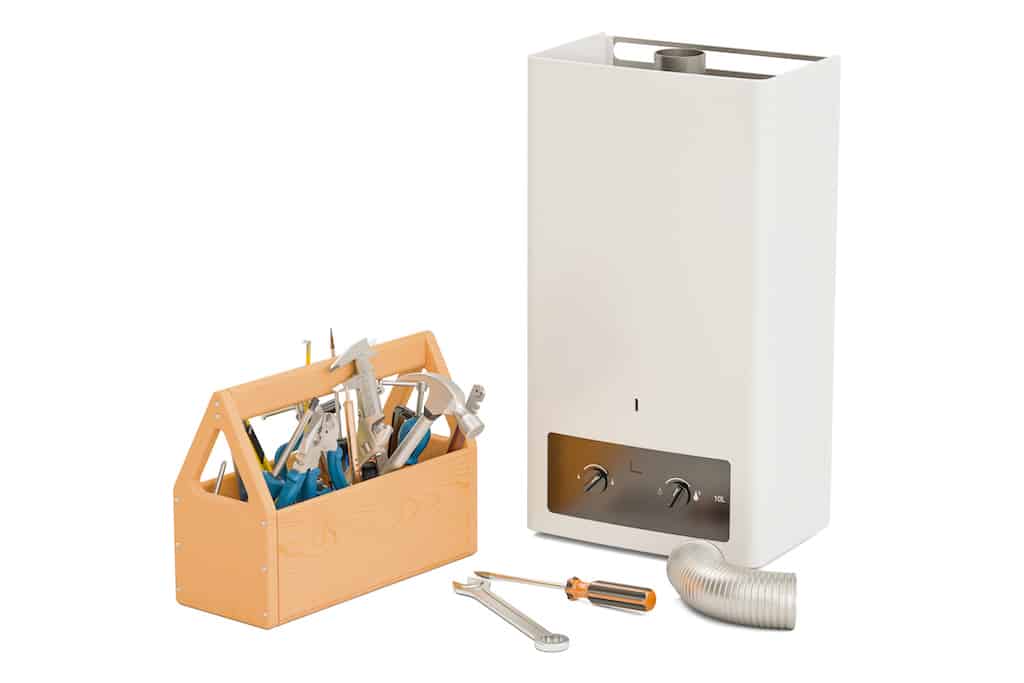
Revolutionize Your Home: Tankless Water Heaters – A Comprehensive Guide
You’ve probably heard about tankless water heaters, but what exactly are they?
How can they transform your home’s plumbing system?
If you’re tired of running out of hot water or dealing with bulky traditional heaters, tankless water heaters might be the solution you’ve been searching for.
In this article, we’ll explore everything you need to know about tankless water heaters, from their benefits and how they work to the best models available.
What are Tankless Water Heaters?
Tankless water heaters, also known as on-demand or instantaneous water heaters, are a revolutionary advancement in plumbing technology.
Unlike traditional water heaters that store hot water in a tank, tankless water heaters provide hot water only when needed, ensuring a constant supply.
Tankless water heaters operate on a simple yet effective principle. When a hot water tap is turned on, cold water travels through a pipe into the unit.
A gas burner or electric element then heats the water instantly, delivering a continuous flow of hot water. There’s no need to wait for a storage tank to fill up with enough hot water.
Advantages of Tankless Water Heaters includes the following:
Energy Efficiency: By heating water only when it’s needed, tankless water heaters can be 24%–34% more energy-efficient than conventional storage tank water heaters.
Space-Saving Design: Their compact size allows for more flexible installation options, freeing up valuable space in your home.
Endless Hot Water Supply: Forget about running out of hot water in the middle of a shower. Tankless water heaters provide an endless supply, enhancing comfort and convenience.
Longevity: With proper maintenance, tankless heaters can last up to 20 years or more, outlasting traditional models.
There are mainly two types of tankless water heaters:
Gas-Fueled: These use a gas burner to heat the water and are typically more powerful, suitable for larger households.
Electric: Electric tankless water heaters are generally smaller and ideal for point-of-use applications, like under a kitchen sink.
Before deciding to install a tankless water heater, consider the following:
Initial Cost: They can be more expensive upfront but offer long-term savings.
Size and Demand: Determine the right size based on your household’s hot water demand.
Local Regulations: Check with local building codes and regulations regarding installation.
Tankless water heaters are an innovative solution that offers numerous benefits over traditional water heaters. From energy efficiency to space-saving design, they cater to modern-day needs, providing a seamless hot water experience.
If you’re considering an upgrade or building a new home, tankless heaters are worth exploring for their convenience, efficiency, and long-term value.
Also read: A Plumber’s Explanation Of Your Components Of Your Toilet Tank
Benefits of Tankless Water Heaters
The shift towards more sustainable and efficient home appliances has led many homeowners to consider tankless water heaters. These innovative devices offer several advantages over traditional water heaters, making them an attractive option for new installations or replacements.
Here’s a detailed look at the benefits of tankless water heaters:
Energy Efficiency
By heating water only when needed, tankless heaters can save up to 30% more energy than traditional models.
Unlike conventional water heaters that continuously heat water in a storage tank, tankless systems heat water on demand. This eliminates the need to maintain a tank of hot water, reducing energy consumption and lowering utility bills.
Space-Saving Design
One of the most appealing features of tankless water heaters is their compact design.
Traditional water heaters require a large tank, taking up valuable space in your home. In contrast, tankless systems can be mounted on a wall, freeing up floor space and allowing for more flexible installation options.
This is particularly beneficial in smaller homes or apartments where space is at a premium.
Unlimited Hot Water
With a tankless water heater, you’ll never run out of hot water again. Traditional water heaters can run out of hot water if the demand exceeds the tank’s capacity.
Tankless systems, on the other hand, provide a continuous flow of hot water, ensuring that everyone in your household can enjoy a hot shower, even during peak usage times.
Longevity
Tankless heaters typically last longer than traditional water heaters.
While conventional water heaters may last 10 to 15 years, a well-maintained tankless system can last up to 20 years or more. This extended lifespan adds to the overall value of the system, making it a wise investment for the long term.
Improved Water Quality
Since tankless water heaters don’t store water in a tank, there’s less chance of rust and scale buildup. This leads to cleaner, fresher water, enhancing the overall water quality in your home.
Eco-Friendly
Tankless water heaters are often considered more environmentally friendly. Their energy efficiency reduces greenhouse gas emissions, and their longer lifespan means less waste in landfills.
Many models are also designed with recyclable parts, further contributing to environmental sustainability.
The benefits of tankless heaters extend beyond energy savings and space efficiency. Their ability to provide unlimited hot water, coupled with their longevity and positive environmental impact, makes them a compelling choice for modern homeowners.
Whether you’re building a new home or looking to upgrade your existing water heating system, tankless heaters offer a range of advantages that align with today’s emphasis on sustainability, convenience, and value.
Also read: Why A Plumber Recommends A Tankless Water Heater
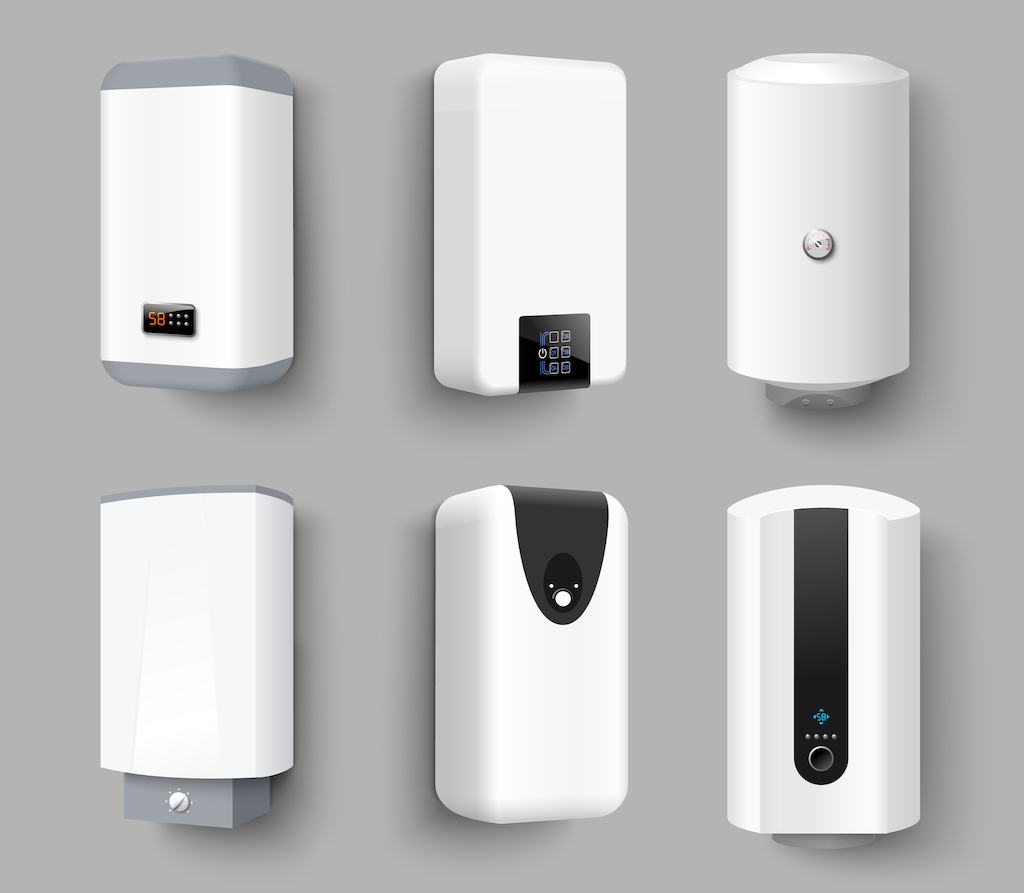
Photo By SiberianArt at iStock
How to Choose the Right Tankless Water Heater
Selecting the right tankless water heater depends on various factors such as your home’s size, water usage, and budget. Making the right choice ensures that you have a continuous supply of hot water without spending unnecessarily on energy bills.
Here’s a comprehensive guide to help you make the right choice:
Fuel Type: Gas or Electric?
The first decision you’ll need to make is whether to go with a gas or electric tankless water heater. Consider the availability and cost of gas or electricity in your area.
Gas models are generally more powerful but may require venting, while electric models are easier to install but might be less efficient in colder climates.
Size: Flow Rate and Temperature Rise
Determining the correct size is crucial for the performance of tankless water heaters. You’ll need to calculate the flow rate (how much hot water you need at once) and the temperature rise (how much the water needs to be heated).
Consider all the fixtures that might be using hot water simultaneously and consult with a professional if needed.
Brand: Quality and Reliability
Research reputable brands known for quality and reliability. Reading customer reviews and seeking professional recommendations can help you identify brands that have a track record of durability and performance.
Energy Efficiency
Look for models with a high Energy Factor (EF) rating. The higher the EF, the more energy-efficient the unit is.
Energy-efficient models might cost more upfront but can save you money in the long run.
Installation Considerations
Consider the installation requirements, such as venting for gas models or electrical requirements for electric models. Some installations might require professional assistance, so factor in the cost of hiring a plumber or electrician.
Warranty and Support
Check the warranty offered by the manufacturer and ensure that you have access to customer support if needed. A longer warranty often indicates confidence in the product’s quality.
Climate Considerations
If you live in a colder climate, you may need a unit with a higher capacity to heat the water to the desired temperature. Consider models designed specifically for cold climates.
Cost: Initial and Ongoing
Consider both the initial cost of the unit and the ongoing operating costs. While tankless water heaters can be more expensive upfront, they often provide savings in energy costs over time.
Choosing the right tankless water heater is a decision that requires careful consideration of various factors.
By understanding your specific needs and doing thorough research, you can find a unit that provides endless hot water, energy savings, and long-term value.
Whether you’re upgrading from a traditional water heater or installing a new system, this guide can help you navigate the options and make an informed choice.
Here’s everything else you need to know about tankless heaters, including installation, maintenance, and common misconceptions.
Also read: Water Heater Repair: Tankless Water Heater Problems And How Plumbers Can Help
Top 5 Tips for Tankless Water Heater Installation
Installing tankless heaters can be a complex task that requires careful planning and execution. Here are the top 5 tips to ensure a successful installation:
Hire a Professional Plumber
An installation involving gas piping is best left to a licensed, professional plumber. They have the expertise to handle the specific requirements of tankless water heaters, ensuring safety and efficiency.
Consider the Gas Line and Electrical Outlet
The new water heater may require a larger gas line, which will need to be run from the gas meter to the water heater. An on-demand water heater also requires an electrical outlet. An electrician may need to assist in adding one near the installation location.
Proper Venting and Air Intake
Using a hole saw, drill a hole on the outside of the house near the location of the water heater. Run PVC pipes for the fresh air intake and vent through that hole.
Proper venting is crucial for the safe operation of tankless heaters.
Choose the Right Location
Selecting the right location for your tankless water heater is essential. It should be easily accessible for maintenance and close to the gas and water lines. Consider the distance to the plumbing fixtures to minimize the wait time for hot water.
Follow Manufacturer’s Instructions
Different models of tankless water heaters may have specific installation requirements. Always follow the manufacturer’s instructions to ensure proper installation and optimal performance.
Common mistakes to avoid
Using an Outdoor Model Indoors: Ensure that the model you choose is suitable for indoor installation.
Improper Venting: Incorrect venting can lead to inefficiency and safety hazards.
Wrong Size Selection: Choosing the wrong size can lead to inadequate hot water supply or energy wastage.
Incorrect Drain Line Setup: Proper drainage is essential to prevent water damage.
Dry Firing the Heater: Turning on the heater before it’s full can damage the heating elements.
Maintenance Tips
Maintenance is equally important for the longevity of tankless heaters. Follow the following tips religiously:
Regular Inspection: Regularly inspect for leaks or signs of wear.
Descaling: Periodic descaling helps prevent mineral buildup.
Checking the Pressure Relief Valve: This valve, located at the top of most units, should be checked to ensure proper functioning.
Filter Cleaning: Clean or replace filters as needed to maintain optimal performance.
Consider Energy Efficiency
The Department of Energy also provides information on why a tankless water heater might be the right choice for your home, emphasizing energy efficiency. Tankless water heaters can be 24%–34% more energy-efficient than traditional models, contributing to lower energy bills and a reduced carbon footprint.
Installing tankless heaters is a significant investment that can provide endless hot water and energy savings.
By following these top tips and considering professional installation, you can enjoy the many benefits of tankless heaters in your home.
Troubleshooting Common Problems with Tankless Water Heaters
While tankless heaters offer many advantages, like any appliance, they can encounter problems. Understanding common issues and how to troubleshoot them can save time and potentially avoid a service call.
Here’s a guide to identifying and resolving some typical problems:
No Hot Water
If your tankless water heater is not producing hot water, it could be due to several reasons:
Power Source: Check if the unit is receiving power. For electric models, ensure the breaker hasn’t tripped. For gas models, verify the gas supply.
Ignition Failure: Gas models may have an ignition failure. Refer to the manual for specific troubleshooting steps.
Flow Sensor: The flow sensor might not detect water flow. Cleaning or replacing it may resolve the issue.
Fluctuating Water Temperature
Inconsistent water temperature can be frustrating. Possible causes include:
Mineral Buildup: Hard water can lead to mineral buildup, affecting performance. Regular descaling can prevent this issue.
Demand Exceeding Capacity: If multiple fixtures are using hot water simultaneously, it may exceed the unit’s capacity. Consider your household’s hot water needs when selecting a unit.
Error Codes
Modern tankless heaters often display error codes to indicate specific problems. Refer to the user manual to interpret these codes and follow the recommended troubleshooting steps.
Water Leaks
Water leaks can be a sign of:
Loose Connections: Check and tighten any loose connections.
Internal Component Failure: This may require professional diagnosis and repair.
Noise Issues
Unusual noises from the unit might indicate:
Air in the Lines: Purging the lines may resolve this issue.
Mineral Buildup: Regular maintenance can prevent noises related to mineral buildup.
Maintenance Considerations
Proper maintenance can prevent many common problems:
Regular Inspection: Regularly inspect the unit for signs of wear or damage.
Annual Servicing: Consider professional servicing annually to ensure optimal performance.
Follow Manufacturer Guidelines: Adhering to the manufacturer’s maintenance recommendations can extend the unit’s lifespan and efficiency.
Troubleshooting common problems with tankless water heaters doesn’t always require professional intervention.
Familiarizing yourself with the unit’s operation and following a regular maintenance routine can help you identify and resolve minor issues.
However, for more complex problems or if you’re unsure, it’s always best to consult a professional technician. Investing in a quality tankless water heater and understanding its care can provide years of reliable, energy-efficient hot water for your home.
Integrating Smart Technology with Tankless Water Heaters
In the age of smart homes and IoT (Internet of Things), integrating smart technology with tankless heaters is becoming increasingly popular. This fusion of technology not only adds convenience but also enhances efficiency and control.
Here’s an exploration of how smart technology is revolutionizing the way we use tankless heaters:
Smart Control Panels
Modern tankless heaters often come with smart control panels that allow users to precisely control water temperature, monitor energy usage, and even detect potential issues.
These control panels can be accessed through smartphones or other smart devices, providing control at your fingertips.
Remote Monitoring and Control
With smart technology, you can monitor and control your tankless water heater remotely.
Whether you’re at work or on vacation, you can adjust settings, turn the unit on or off, and receive alerts for any unusual activity or maintenance needs.
Integration with Smart Home Systems
Tankless water heaters can be integrated into broader smart home systems, allowing them to work in harmony with other smart appliances.
For example, you can program the water heater to lower the temperature during hours when hot water is not typically needed, saving energy.
Predictive Maintenance
Smart tankless heaters can predict when maintenance is due or when a part may need replacement. This predictive maintenance feature ensures that the unit is always operating at peak efficiency and can prevent unexpected breakdowns.
Voice Control
Some advanced models offer voice control compatibility with virtual assistants like Amazon Alexa or Google Assistant.
You can simply ask your virtual assistant to adjust the water temperature or turn off the water heater.
Energy Usage Insights
Smart technology provides detailed insights into energy usage, allowing homeowners to understand their consumption patterns and make informed decisions to reduce energy costs. Some models even offer suggestions for optimizing energy usage.
Enhanced Safety Features
Integrating smart technology adds layers of safety to tankless heaters.
Features like automatic shut-off in case of a detected leak or other malfunctions enhance the safety of the unit.
Environmental Impact and Incentives of Tankless Water Heaters
The decision to choose a tankless water heater is not only about personal convenience and energy savings; it also has broader implications for the environment.
As more homeowners seek sustainable solutions, tankless heaters have emerged as an eco-friendly option.
Here’s a closer look at their environmental impact and potential incentives that might make them an attractive choice:
Reducing Energy Consumption
Tankless heaters operate on-demand, heating water only when needed. This eliminates the constant energy consumption associated with traditional tank heaters, reducing overall energy usage.
By choosing an energy-efficient model, homeowners can further minimize their carbon footprint.
Lowering Greenhouse Gas Emissions
Gas-powered tankless heaters emit fewer greenhouse gasses compared to traditional models.
By optimizing fuel consumption, they contribute to a reduction in harmful emissions, aligning with global efforts to combat climate change.
Water Conservation
By providing instant hot water, tankless heaters reduce the need to let water run until it reaches the desired temperature. This can result in significant water savings, contributing to overall water conservation efforts.
Recycling and Waste Reduction
Many tankless water heaters are designed with recyclable parts, promoting a circular economy. Additionally, their longer lifespan means fewer units end up in landfills, reducing waste.
Potential Incentives and Rebates
Governments and utility companies often recognize the environmental benefits of tankless heaters and may offer incentives to encourage their adoption:
Federal Tax Credits: In some countries, homeowners may be eligible for tax credits for installing energy-efficient appliances, including tankless heaters.
State or Local Rebates: Depending on your location, there may be additional rebates or incentives at the state or local level.
Utility Company Programs: Some utility companies offer discounts or rebates for customers who choose energy-efficient appliances.
Choosing an Eco-Friendly Model
When selecting a tankless water heater with environmental considerations in mind, look for certifications such as ENERGY STAR. These certifications indicate that the product meets specific energy efficiency standards.
The environmental impact of tankless heaters extends beyond personal energy savings. Their ability to reduce energy consumption, lower greenhouse gas emissions, conserve water, and minimize waste makes them a responsible choice for environmentally conscious homeowners.
Coupled with potential financial incentives, these factors add another layer of appeal to tankless heaters.
As the world continues to grapple with environmental challenges, choosing sustainable home appliances like tankless heaters can be a small but significant step towards a greener future
Bluefrog Home Services of New Orleans and How It Can Help with Tankless Water Heaters
Looking for professional assistance with tankless heaters in New Orleans, LA, Harvey, LA, or Timberlane, LA?
Bluefrog Home Services of New Orleans is here to help! With top-notch services and highly skilled technicians, we provide installation, repair, and maintenance for tankless heaters.
Check our reviews and ratings, and give us a call at 504-229-4848 for a hassle-free experience.
Conclusion
Tankless water heaters are an innovative solution for homeowners looking for energy efficiency, space-saving, and endless hot water supply.
Whether you’re considering making the switch or need professional assistance in New Orleans, LA, Harvey, LA, or Timberlane, LA, this comprehensive guide has covered everything you need to know.

Photo By HowLettery at iStock
FAQs
- What are Tankless Water Heaters?
Tankless water heaters heat water directly without the use of a storage tank. They provide hot water only when needed, saving energy and space.
- How Do Tankless Water Heaters Work?
They use either a gas burner or electric element to heat water as it flows through the unit, providing a continuous supply of hot water.
- Can I Install a Tankless Water Heater Myself?
While some homeowners may attempt to install tankless heaters themselves, professional installation is recommended to ensure safety and efficiency.
- How Long Do Tankless Water Heaters Last?
With proper maintenance, tankless heaters can last up to 20 years or more.
- Are Tankless Water Heaters Energy Efficient?
Yes, tankless water heaters are more energy-efficient than traditional models as they only heat water when needed.
Have you ever considered upgrading to a tankless water heater?
Share your thoughts and experiences with us in the comments below!
Check out this tip!
See our most recent blog on this topic here.
Manny Mitten






